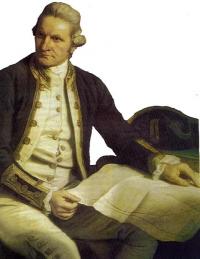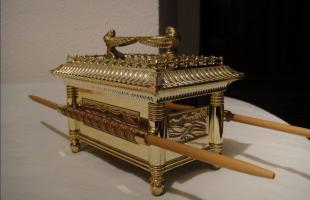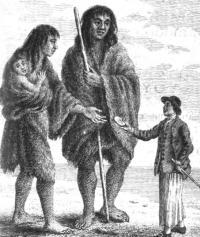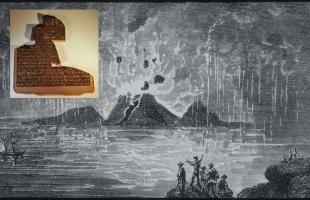29 - The preparedness hoax

Via NY Transfer News Collective * All the News that Doesn't Fit
How Capitalists Rule/Pt.29
The Republocrats Series
Part 29:
THE PREPAREDNESS HOAX
By Vince Copeland
BLACK HUMILIATION
If Woodrow Wilson intended to be a genuine liberal and reformer, his performance left a great deal to be desired. For example, he and his associates presided over a further humiliation of the Black people when they segregated government office facilities between white and Black. One of the worst examples was in the Dead Letter Office, where Black workers were segregated "back of a row of lockers in a corner of a room." (Rayfield W. Logan, "The Betrayal of the Negro," p. 362)
Princeton University, where Wilson was president from 1902 to 1910, was probably the only major northern university that absolutely excluded Black students. And Wilson as governor of New Jersey failed to lift a finger for the slightest amelioration of the oppression of African Americans.
Although Wilson took office as a reformer and a liberal, "Wall Street was not disturbed. As George Harvey later wrote, vested wealth accepted Wilson's election 'without serious misgiving'; the capitalists, he said, 'felt no animosity toward Mr. Wilson for such of his utterances as they regarded as radical and menacing to their interests. He had simply played the political game.'" (Ferdinand Lundberg, "America's Sixty Families," p. 120)
However, there is no question that he did move to the left during his first term in office. The program Wilson effected was often compared favorably with that put forth by William Jennings Bryan in 1896.
Nevertheless, Wilson's "leftism" had no relationship to the program of Eugene Debs, the Socialist Party candidate, which was more revolutionary and oriented to the working people. Wilson was relatively more progressive than the Republicans purely on domestic questions, and then only if one puts aside the eternal double-cross of Black citizens that was the rule with both Republican and Democratic politicians.
Any of the three major candidates would have taken a more progressive position on general social and economic matters, however. The pressure of the masses at this time--that is, the white majority, who had the de facto vote--was too great to do otherwise.
SOME SOCIALISTS FOR WILSON
It was in this atmosphere that W.E.B. Dubois, the leader of the left wing of the Black protest movement and active in the socialist movement, supported Wilson for president, quitting the Socialist Party to do so.
Dubois supported Wilson mainly on the basis of his promises in the 1912 campaign shortly before the election. Dubois, however, was not merely taken in by Wilson's personal demagogy but was planning bigger strategy with the Democratic Party as a whole. That is, he seems to have felt that the Democrats' anti-Wall Street line was attracting enough progressives in the North to swing the party nationally into a better position as far as African Americans were concerned.
This strategy persists today, with the Congressional Black Caucus solidly in the Democratic Party. But Dubois also showed later, in his 1936 book "Black Reconstruction," that the Democrats as well as the Republicans had been firmly controlled by Wall Street as far back as 1872.
He wrote in the NAACP organ, "The Crisis:"
"We sincerely believe that even in the face of promises disconcertingly vague, and in the face of the solid caste-ridden South, it is better to elect Woodrow Wilson President of the United States and to prove once for all if the Democratic Party dares to be democratic when it comes to black men. It has proven that it can be in many Northern states and cities. Can it be in the nation? We hope so, and we are willing to risk a trial."(Quoted in Rayford W. Logan, "Betrayal of the Negro," p. 361)
Whatever final vindication this concept may have had, the truth is that one of the biggest waves of lynchings took place within the next two decades after it was written.
Dubois was most probably basing himself on the idea that the Democrats, especially in the more liberal North, were more progressive than the Republicans in general, including on the race question. In the absence of big revolts such as had occurred in the 1880s and 1890s, the Democrats had begun to become the repository of the hopes of progressives and left wingers. But this was still mostly the music of the future.
The Socialists who stayed with their party not only opposed Wilson but opposed the war. Many, including their leader, Eugene V. Debs, went to jail. Debs was sentenced to a 10-year term, with no mercy from Wilson.
Among the Socialists who turned their backs on their party was Upton Sinclair, author of "The Jungle," an expose of the Chicago meatpacking industry, as well as several other excellent novels of social protest. He forgot about socialism long enough to support Wilson, particularly in the "he kept us out of war" election of 1916. Sinclair later said, "Wilson fooled me." Still later, in 1932, he ran for governor of California on the Democratic ticket with an "almost" socialist program. And the conservatives of the whole country joined in vituperating and defeating him.
WILSON IN MEXICO
It would have been difficult to find a citizen of Mexico in 1913 to 1917 who viewed Wilson as a liberal or "progressive." The Mexican Revolution, which had begun in 1910, was still going on at this time and Wilson intervened on several occasions, mostly in favor of the big U.S. oil companies and U.S.-owned mines.
On one occasion, when some U.S. sailors were arrested temporarily in Vera Cruz for an infraction of Mexican port rules, the Mexican superior officer apologized to the U.S. admiral. But the admiral demanded that the Mexicans give a 21-gun salute to the U.S. flag to show their sincerity. This the Mexicans refused to do.
Wilson immediately mobilized the whole U.S. Atlantic and Pacific fleets and readied for a major intervention and occupation. He gave up the idea only because there was so much opposition within the United States. This actually happened and is mentioned in several histories.
It is hardly necessary to detail the thoughtless slaughter of Mexican people that did take place at the hands of a government with such a chauvinist attitude. This intervention and relative suppression of the Mexican Revolution dictated that the United States should have hegemony over Mexico for many years to come, although not exactly in the same form as it had in the years before.
Significantly enough, Bryan, who was still Secretary of State when some of this occurred, made no public objection to the Mexican adventures of the U.S. Like many of his contemporaries, Bryan did not understand all the maneuvers between British and U.S. oil companies that were involved in the fighting in Mexico. But he also did not include colonial wars in his code of anti-war positions. Such were the limits of his left-Democratic philosophy--which persist to this day in most of the Democratic Party.
PACIFISM AND PREPAREDNESS
All the while that Wilson was sending troops to Mexico under the command of Gen. John Pershing, who later was to command the American Expeditionary Force to Europe, he was preaching pacifism in relation to the European war. "There is such a thing as being too proud to fight," he declared. The Republicans, however, established pro-war Preparedness clubs throughout the country and initiated a Preparedness movement in Congress.
The "war party" was composed of top Democrats and top Republicans. But until the actual U.S. entry into the war, it was the Republicans who pre-empted the war issue and identified themselves with the Preparedness campaign.
A good argument can be made that Wilson was carefully maneuvering popular sentiment toward war. But in addition to that, it was in the interest of U.S. big business to stay out of the conflict in the early stages and then pick up the pieces at the end when the European powers were mutually exhausted. Then, with a minimal intervention, they would exercise the deciding power over the ex-combatants in Europe. Wilson and his collaborator, Col. Edward House, seem to have been well aware of this aspect of things, too.
The sentiment in the U.S. was overwhelmingly anti-war and an early entry in that television-less age would probably not have gained the support of the majority of the people. So Wilson kept talking peace. But he did conciliate with the Preparedness forces. During his first term, in 1915 and 1916, together with his Navy Secretary Josephus Daniels, Wilson proceeded to build what by 1924 would be the biggest navy in the world, far surpassing the mighty British. In addition, he doubled the size of the army and bought military equipment on what was then a colossal scale.
-30-
Copyright Workers World Service: Permission to reprint granted if source is cited. For more info contact Workers World, 46 West 21st Street, New York, NY 10010; e-mail: ww%nyxfer@igc.apc.org or workers@mcimail.com.
+ Join Us! Support The NY Transfer News Collective +
+ We deliver uncensored information to your mailbox! +
+ Modem: 718-448-2358 FAX: 718-448-3423 e-mail: nyxfer@panix.com +
























